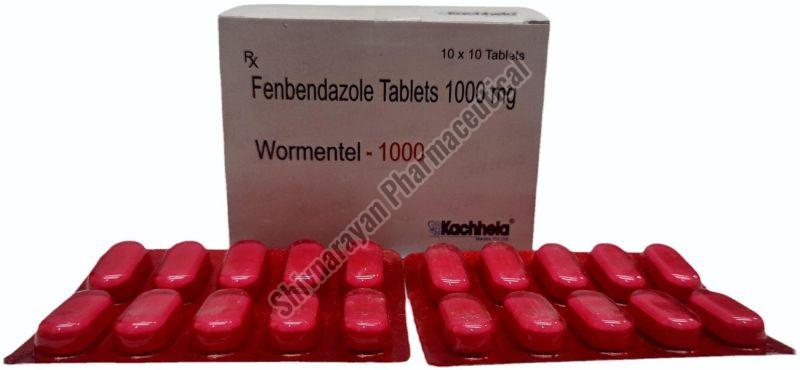fenbendazole: Dosage Guidelines For Safe Treatment
Wiki Article
Understanding the Benefits and Uses of Fenbendazole in Vet Medicine
Fenbendazole has developed itself as an essential anthelmintic in vet medicine. Its capacity to target various parasitical infections makes it an important device for vets. The drug's system disrupts important mobile processes in bloodsuckers, causing effective treatment end results. Its safety and security account differs between varieties, necessitating careful factor to consider in its usage (fenbendazole). Comprehending these characteristics can clarify fenbendazole's wider ramifications in vet care and ongoing research study right into its potential past standard applicationsMechanism of Action of Fenbendazole

Typical Parasitical Infections Treated With Fenbendazole
A selection of parasitic infections are properly treated with fenbendazole, making it a flexible alternative in veterinary medicine. This anthelmintic agent is especially reliable versus nematodes, including roundworms and hookworms, which generally impact canines and cats. It is additionally used for the therapy of cestodes, such as tapeworms, supplying a wide range of activity versus both sorts of intestinal bloodsuckers. In addition, fenbendazole is beneficial in handling infections triggered by protozoa, specifically Giardia, which can result in intestinal distress in pets. Its efficiency expands to dealing with certain lungworms in dogs and felines, addressing respiratory health and wellness problems connected to these parasites. Generally, fenbendazole's capacity to target numerous parasitic types makes it an important device in veterinary practice, making certain the wellness and health of animals influenced by these common infections.Safety and Efficacy in Various Pet Types
The safety and effectiveness of fenbendazole differ among various animal varieties, highlighting the value of species-specific factors to consider in veterinary medicine. In canines, fenbendazole is typically well-tolerated and efficient versus a range of gastrointestinal bloodsuckers, including roundworms and hookworms. For felines, nonetheless, its usage is much less common and may call for careful application due to potential negative reactions.In livestock, such as cattle and lamb, fenbendazole shows performance against numerous endoparasites, adding to boosted health and wellness and performance. The pharmacokinetics and prospective side effects can differ noticeably in between types, necessitating careful examination by veterinarians.
Equines also react positively to fenbendazole, specifically for dealing with strongyles and ascarids, though dose and administration courses need to be tailored to their unique physiology. Consequently, understanding these differences is essential for optimizing treatment end results and guaranteeing pet well-being across diverse types.
Management and Dosage Guidelines
Correct management and dosage guidelines are vital for taking full advantage of the healing impacts of fenbendazole while minimizing possible side impacts. The dose normally differs depending on the types being dealt with, the certain condition, and the formula of fenbendazole made use of. fenbendazole. For pet dogs and felines, a typical dose is 50 mg/kg body weight, carried out daily for three consecutive days, but vets might readjust this based on individual health and wellness evaluationsIt is necessary to carry out fenbendazole with food to improve absorption and decrease intestinal distress. The medicine is available in different types, including granules and paste, enabling versatile administration alternatives. Keeping an eye on the pet's action throughout and after treatment is recommended to verify efficiency and safety and security. In addition, veterinary guidance is vital to figure out the appropriate period of treatment based upon the sort of parasitical infection being attended to, guaranteeing ideal results for the animal's wellness.
Future Point Of Views and Research Study on Fenbendazole
Study on fenbendazole remains to evolve, focusing on its prospective applications past conventional antiparasitic usages. Recent researches have explored its performance in treating numerous forms of cancer, especially in veterinary oncology. Initial data suggest that fenbendazole may hinder the development of growth cells and boost the effects of various other chemotherapeutic representatives.Additionally, scientists are examining its function in managing stomach disorders in animals, highlighting its anti-inflammatory homes. The flexibility of fenbendazole for various varieties questions regarding its safety profiles and ideal dosing programs in varied populations.
As passion expands, there is a need for complete professional trials to develop evidence-based guidelines for these novel applications. Future study might likewise explore the devices behind fenbendazole's results, potentially leading the way for cutting-edge restorative methods in veterinary medication. The continuous expedition of fenbendazole can considerably improve treatment alternatives for numerous veterinary conditions.

Often Asked Concerns
Is Fenbendazole Safe for Pregnant Animals?
The safety and security of fenbendazole for expectant animals remains uncertain. While some researches suggest very little threat, vets usually advise caution and commonly discourage its usage during maternity unless the advantages plainly exceed potential dangers.Can Fenbendazole Be Utilized in Animals?
Fenbendazole is frequently made use of in animals to treat different parasitical infections. fenbendazole 222. Its efficiency against stomach worms makes it an important anthelmintic, adding to improved health and wellness and performance in animals increased for food and fiberWhat Are the Negative Effects of Fenbendazole?

The adverse effects of fenbendazole may include intestinal disturbances, lethargy, and allergies. In uncommon instances, more extreme reactions can occur, necessitating careful surveillance and assessment with a vet during therapy.
How Does Fenbendazole Contrast to Various Other Dewormers?
Fenbendazole uses broad-spectrum effectiveness against different bloodsuckers, typically comparing positively to other dewormers. Its distinct mechanism targets various life phases, making it effective, while normally presenting a favorable safety and security account compared to options readily available on the marketplace.Can Fenbendazole Be Made Use Of for Treating Cancer in Pets?
The potential of fenbendazole in dealing with cancer fenbendazole 222 in family pets has garnered rate of interest. Initial research studies suggest it may prevent cancer cell development, yet even more study is required to confirm its effectiveness and safety and security in vet oncology.Report this wiki page